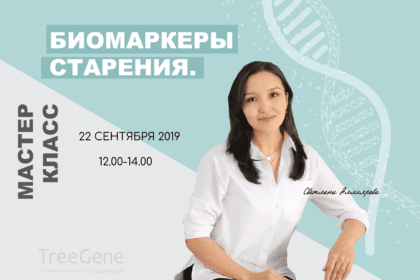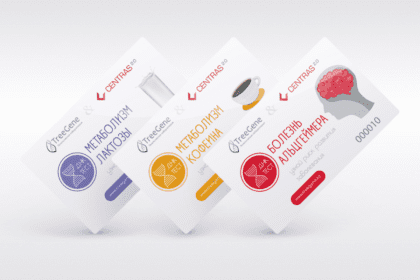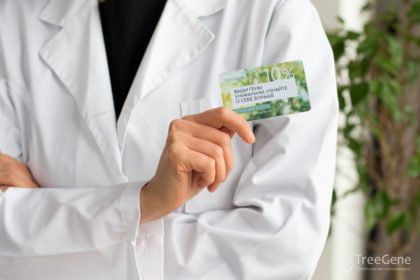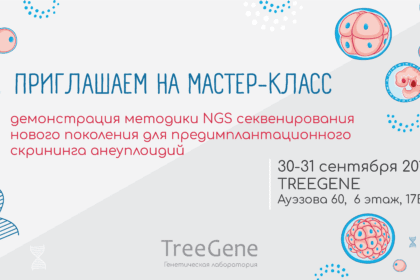 Syzdykbekova Aliya Sayatovna
Syzdykbekova Aliya Sayatovna
Bachelor of Chemical and Biological Sciences
Private forensic expert
License №16012797 from 10.08.2016g. issued by the Ministry of Justice of the Republic of Kazakhstan
Phone: 87013094868
E-mail: expert_syzdykbekova@mail.ru
Key words: expertise, private forensic experts, forensic activities, licensor, competence, special scientific knowledge.
Annotation:
This article considers the problems associated with the activities of a private forensic expert, who carries out his activities on the basis of a license. It also raises the question of the competence of the expert, the need for regular training.
Abstract:
This article considers challenges associated with activities of the private forensic expert that operates under license. Also an issue of the competence of the expert, the need for regular advanced training is also raised.
The basic principle of forming a state governed by the rule of law is the observance of the rule of law in all spheres of public life, especially in the administration of justice. As is known, an important role in the process of establishing the truth in a case is played by forensic expertise. Despite the specialization of judges, the complexity of problems arising before them leads them to the need to appoint an expertise [1].
At the present stage in civil society, a qualified, experienced corps of forensic experts, who carry out forensic activities on the basis of a state license, is formed and functioning, which allows to provide an alternative component of forensic activities of state bodies of forensic expertise.
The establishment of the Chamber of forensic experts is intended to streamline and optimize the work of private experts and provide them with the necessary conditions, as provided for in the draft Law "On forensic activities in the Republic of Kazakhstan. The powers of the Chamber are aimed at representing and protecting the rights and legitimate interests of its members in state bodies and non-governmental organizations; providing assistance and assistance in the development of forensic activities; ensuring compliance of its members with the requirements of the legislation on forensic activities in the performance of proceedings [2].
The Ministry of Justice of the Republic of Kazakhstan is working purposefully to increase the level of competition in the forensic environment and improve the efficiency of the licensees. A serious step in support of private forensic activities was the simplification of requirements for issuing a license for forensic activities [3].
Forensic expertise is an applied field of knowledge and activity. Its existence, the very subject and boundaries are determined by the needs of civil society in the use of special knowledge in solving law enforcement tasks in criminal, civil and administrative proceedings. The course of expert study differs from all other creative research of scientific and practical nature by peculiarities of the sphere of application by knowledgeable persons - experts, of their special scientific knowledge, namely the sphere of criminal, civil and administrative proceedings. It is the legal application of the results of expert activity that determines the specificity of problems of its appointment and production. In this article we would like to focus on the problems of involvement in the process of private licensed experts and legal protection of forensic experts in general [4].
Currently, forensic activities are carried out by three categories of persons with the same rights and responsibilities, namely:
1) employees of forensic authorities;
2) persons carrying out forensic activities on the basis of a license;
3) on an ad hoc basis by other persons involved in the process on the basis of a ruling or determination of a law enforcement agency [5].
However, analysis of the practice of appointing forensic examinations shows that mainly forensic examinations in criminal, civil and administrative proceedings are assigned to state forensic authorities. Appointment and production of expertise by persons with a state license to carry out forensic activities, or on an ad hoc basis, is virtually non-existent, due to the conservative attitude of judges and law enforcement officials, due to which, traditionally and universally, forensic examination is appointed by courts and law enforcement agencies directly to forensic authorities.
It should be noted that the availability of the possibility of appointment and production of forensic examination, not only by employees of forensic authorities, but also by persons outside the system of forensic expertise, on a legal basis, is a significant, progressive, positive factor that allows to implement the democratic principles of equality and adversarial proceedings in the judicial process. The court bases the procedural decision only on those evidences, participation in the examination of which on an equal basis was provided to each of the parties. In the course of court proceedings the parties shall choose their position, methods and means of defending it independently and independently of the court, other bodies and persons. The court at the request of the party shall assist it in obtaining the necessary materials in the manner prescribed by procedural law [6].
It is especially important to broadly involve in criminal, civil and administrative processes the institution of independent forensic experts who have the right to conduct forensic examinations on the basis of a state license, taking into account the current strengthening of the fight against corruption in state bodies. Since 2007 juries have been actively functioning in Kazakhstan. Now the accused have the opportunity to choose the form of judicial proceedings: by the traditional composition of professional judges or by the court with the participation of private citizens[7]. Just as the institutions of traditional and jury trial exist in the judicial system, so too does the ability for parties to effectively engage both public and private licensed forensic experts in the process is an undeniable attribute of the judicial institutions of a democratic state governed by the rule of law, where fair and humane justice operates. There should be a healthy competition between the state forensic experts and independent experts with a state license to perform forensic activities, which, like any competition, will undoubtedly have a progressive impact in the search for objective truth, which in general will have a positive impact on the entire system of criminal, civil and administrative proceedings.
Previously, before the introduction of the current criminal procedural legislation, the basis for the production of forensic examination and the issuance of a procedural document in the form of "Expert Conclusion" in accordance with the procedural legislation of Kazakhstan, was a decision or determination of the court, the decision of the prosecutor's office, preliminary investigation and inquiry bodies [8].
With the introduction of the new Code of Criminal Procedure, dated July 4, 2014, in order to implement the principle of adversarial proceedings, the lawyer involved in the case as a defender, has the right to initiate on a contractual basis the production of forensic examination [9]. Thus, the list of subjects that are authorized to issue a procedural document on the appointment of a forensic examination, which is a binding legal basis for its production, was to be expanded.
The principles of equality and adversarial proceedings lead us to the conclusion that the principles and guarantees of the rights to a fair trial must also be applied identically to the fair examination, which is henceforth viewed as an integral concept and not as an addition to the process. From which it follows equally:
- the right to expertise;
- the right to an impartial and independent expert;
- the right to a "good," that is, a competent expert;
- the right to procedural safeguards;
- observance of the adversarial principle;
- familiarization with the materials of the case;
- the right to receive information;
- the requirement to comply with a reasonable time limit.
I would like to emphasize the "good" expert. This is a matter of competence, linked to continuing education, consisting in the conscience of the expert, who should step aside and abandon the task at hand if he does not consider himself competent. This issue is very seriously controlled in the courts of France, with the listing of experts on the list drawn up annually by the courts and the Court of Appeal [10]. This idea is also reflected in the Law on Forensic Activity of the Republic of Latvia, which stipulates the obligation of the expert to regularly improve his qualification [11]. These requirements are quite justified, given the importance and complexity of the issues solved by the expert in the judicial process.
Also the main issue in the appointment of a forensic expert to a private forensic expert is the payment for the performance of the examination. Forensic activities by their very nature cannot and should not be aimed at making a profit, since the conclusions of the expert cannot and should not be in any dependence on the desire and will of the "customer" of expert work [12].
The expert opinion is one of the most significant evidence, for this reason, the forensic expert in the performance of his duties must be independent and impartial.
It is important to level out the possibility of involving both forensic experts, employees of forensic examination bodies and independent experts in judicial processes. After all, the results of a properly performed, methodologically sound forensic examination conducted by any forensic expert, employee of the forensic examination authorities, or an expert working on the basis of a state license, should coincide, should be the same. If the results of the expert conclusions are different, it means that there is a need for a thorough examination until the truth is found. This is especially true in criminal proceedings, since any doubt about the guilt of the defendant is always interpreted in his favor.
At the same time, providing a choice when determining the figure of a forensic expert, who will be appointed to conduct forensic investigation, will exclude "corporate cooperation" of representatives of state bodies and contribute to the protection of the rights and freedoms of the individual, proclaimed by the Constitution of RK as the highest values of the state[13].
[1] Dupre D. "Norms and standards of expertise in France. National Level Seminar "Promotion of Justice Reform in Kazakhstan". Astana, 27 June 2014. URL: http://www.zakon.kz/4637958-normy-i-standarty-jekspertizy-vo.html (accessed 22.09.2014).
[2] Round table "Development of the institute of private forensic examination". Astana. 24 June 2016. URL:zakon.kz/4801783-v-astane-sostojalsja-kruglyjj-stol.html (accessed 01.09.2016).
[3] Order of the Minister of Justice of the Republic of Kazakhstan № 197 of 28.04.2016. "On Amendments to the Order of the Minister of Justice of the Republic of Kazakhstan No. 48 of January 26, 2015 "On Approval of Qualification Requirements and the List of Documents Confirming Compliance with Them for Forensic Activity, Except for Forensic Medical, Forensic Psychiatric and Forensic Narcological Expertise". URL: https://egov.kz/cms/ru/law/list/V1600013797 (accessed 30.08.2016).
[4] Alaeva G.T. "On some problems of forensic examination". URL:journal.zakon.kz/203427-o-nekotorih-problemakh-sudebnoj.html (accessed 02.09.2016).
[5] Law of the Republic of Kazakhstan of January 20, 2010 № 240-IV "On forensic activities in the Republic of Kazakhstan" Art. 12. URL:http://online.zakon.kz/Document/?doc_id=30560032#pos=1;-144 (date of reference 03.09.2016).
[6] Alaeva G.T. "About some problems...". URL:journal.zakon.kz/203427-o-nekotorih-problemakh-sudebnoj.html (accessed 02.09.2016).
[7] Law of the Republic of Kazakhstan of January 16, 2006 № 121 "On jurors". URL:http://adilet.zan.kz/rus/docs/Z060000121_ (accessed 05.09.2016).
[8] Alaeva G.T. "About some problems...". URL:journal.zakon.kz/203427-o-nekotorih-problemakh-sudebnoj.html (accessed 02.09.2016).
[9] Code of the Republic of Kazakhstan of July 04, 2014 № 231-V ЗРК. Criminal Procedure Code of the Republic of Kazakhstan. URL: http://adilet.zan.kz/rus/docs/K1400000231 (accessed 05.09.2016).
[10] Dupre D. "Norms and Standards of Expertise in France". URL: http://www.zakon.kz/4637958-normy-i-standarty-jekspertizy-vo.html (accessed 22.09.2014).
[11] Law on Forensic Experts. Valsts valodas centrs. URL:vvc.gov.lv/export/sites/defaul...aw_On_ Forensic_Experts.doc (accessed 05.09.2016).
[12] Rossinskaya E.R., Galyashina E.I. "Non-state expert institutions, their legal status and organizational forms". Legality. 2009. №2. URL: http://www.center-bereg.ru/f1268.html (accessed 03.09.2016).
[13] Alaeva G.T. "About some problems...". URL:journal.zakon.kz/203427-o-nekotorih-problemakh-sudebnoj.html (accessed 02.09.2016).








